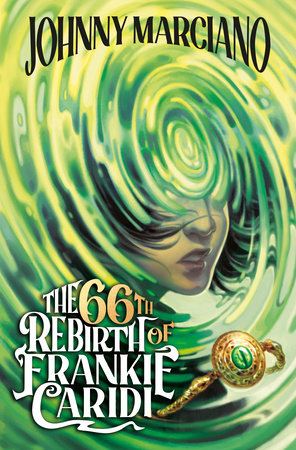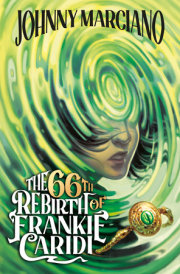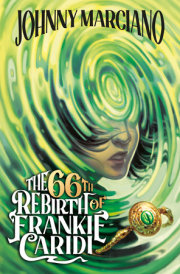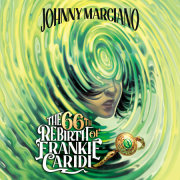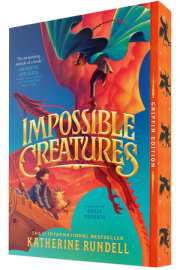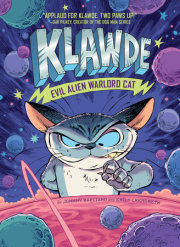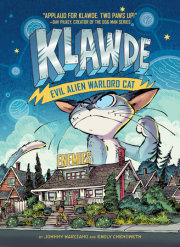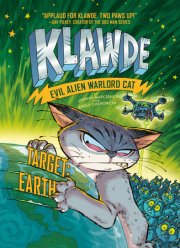Prologue
A man walks in the woods.
Well, something of a man. Something, also, of a beast. Not that you can tell, as his goatlike legs are obscured by baggy corduroy pants.
These pants! Too hot in such weather.
Silvenus peels the shirt away from his clammy chest, sweat circles radiating from his armpits. Never has he gotten used to this humidity. From the Latin
humidus, meaning moist or wet.
Momentary relief rides in on a cool breeze. How lovely! the satyr thinks as he pauses to drink it in. Behind him, a stick breaks. He walks on, now with the sensation of being followed; the wind turns decidedly colder, causing Silvenus to shiver in his damp shirt.
Oh no.
Glancing back, a shadow. Silvenus quickens his pace. Not a pretty sight, his awkward trot, yet fear propels the old satyr forward. Fear, and a breath—huffing on the nape of his neck, on his ear.
They’re back.
Why are they back? How did they get out? The hazards of this place!
His ancient heart bangs against the cage of his chest and he suffers every inhale.
Is this it? Of all the times Silvenus thought the end had come, to die like this, with such embarrassing armpits!
Except, the shadow has ceased chasing him. No matter; the satyr does not stop running until he makes it to the main dormitory of the Institute. Panting, Silvenus enters and is greeted by the portraits of the Founder and of Mother. He does miss her so.
Up the long flights of stairs the satyr climbs to what he still thinks of as Mother’s door. He knocks. And again. Without an answer, he twists the knob and enters. Inside, he is met by his own face, a rather more rude greeting. Silvenus uses the hall mirror to reorganize himself, then walks into the next room, where the apartment’s present occupant sits cross-legged, meditating. He looks even younger than his thirty-two years, his skin as smooth and taut as the marble statuette in the corner.
The satyr would prefer not to disturb Natas. Of course, he would also prefer not to get accosted by disembodied souls on his afternoon stroll in the forest. And whose fault might that be?
“Why do you think
I had anything to do with it?” Natas says, eyes still closed. “You felt the earthquake. It happened on the final day of the summer retreat. Did you not tell me your favorite coffee mug broke?”
Silvenus sighs his dissatisfaction. Because even if the spirit did escape by natural means, Natas could rectify the situation, were he to choose to do so. But he does not.
“All creatures fear the presence of the disembodied, and why? They cannot harm us.” Natas opens his eyes to focus on Silvenus. “It is the vision of what awaits us that is terrifying.” He shuts his eyes again. “Consider these spirits a preparation for your future.”
“And what are you preparing for?” Silvenus asks.
“You know very well,” Natas says. “The one we have been waiting for is coming. I can feel it.”
Natas uncrosses his legs. He doesn’t get up from his seated position; rather, he gets down. Because, you see, he has been levitating.
“
They are coming.”
1
The Wagon Wheel
They are sitting across from Mom in a booth at the Wagon Wheel, a retro diner in Proserpina, PA. The three of them have been driving since six in the morning, which is why they’re eating breakfast at noon.
Or in Frankie’s case, not eating.
“Bad enough the place is some kind of freaky cult, but a boarding school?” Frankie says. “Who wants to
live at school? I just want to be with my friends.”
“It’s not a cult. And stop complaining. You should be thanking your little brother,” Mom says. “The Institute wanted him so badly they’re letting you in, even with your math scores.
That’s how gifted he is.”
She beams proudly at Lucie, whose knife scrapes against his plate.
“Mom, don’t make Frankie feel bad,” Lucie says, chewing. “It’s not her fault that I happen to be the kind of kid who tests well. And that she’s, y’know, not so much that kind of kid. But that does
not invalidate her.”
Lucie puts his hand on his sister’s shoulder and squeezes. He always does just the thing to make her feel worse.
Frankie grits her teeth and retreats into her phone.
Her group chat, Femme Fatality, has been blowing up all morning. Back home, school is already in session and her friends are psyched because, being in eighth grade now, they’re allowed to leave the building for lunch. They can eat wherever they want
and use their phones.
Frankie doesn’t know much about the school she and Lucie are going to, having refused to learn anything about it. (A form of protest that is against her best interests, like most of her protests.) But she does know two things: One, no matter what Mom says, the Institute used to be a weird 1970s mind expansion cult; and two, there’s a no cell phone policy. Even
after class.
STELLA Wish you were here
TAYLOR We’re at bubba’s bubbles
SERENA I’ll drink an oat milk extra boba for you
SERENA 100% sweet
STELLA Yuk! Tooooo sweet!
SERENA Frankie looks down at her disgusting Greek omelet and makes a yuck sound. She presses the last crumb of bacon onto her finger and eats it.
FRANKIE In crappiest diner ever. I hate Pennsylvania already
A red exclamation point pops up next to her message.
Unable to deliver. No signal.
“Who’s the
freak?”
Across the diner, teenage boys wearing camo and baseball caps are pointing at Lucie and cackling. Because of the horns on his head.
Yes,
horns.
“He looks like he should play for the Rams!”
The other teenagers high-five the kid who said it. Like he wasn’t the millionth jerk to make the same stupid football helmet joke.
Frankie hates it when this happens. Not only because it’s mean and she feels the need to defend her little brother; it’s also one more instance of Lucie getting all the attention.
Mom gets up to do something, but Lucie tells her it’s okay and goes over to talk to the camo-and-tractor-hat boys. Frankie can’t hear what he’s saying, but she can see he’s charming them. The bullies touch his horns and whistle, and within minutes, they think Lucie is cool.
Mom brings the check to an old-fashioned cash register and hands it to a girl who’s maybe a year or two older than Frankie. While Mom gets out her wallet, Lucie says goodbye to the jerks.
“Have fun at cult school!”
“You’ll fit right in with the rest of the deems!”
“I
told you it was a cult school,” Frankie whispers to her mom, who’s holding out a credit card.
“Sorry, cash only,” the girl at the register says. As Mom gives her some money, the girl turns to Frankie. “Don’t let those losers bother you. It’s not all deems at the school.”
“Deems?” Frankie says.
Register girl nods without explaining, counting out change. Frankie notices her dyed-black hair has pale yellow roots. Someone who doesn’t want to be blond? That’s Frankie’s kind of person.
“See you later,” the girl says.
Copyright © 2024 by Johnny Marciano; Illustrated by Ashley Mackenzie. All rights reserved. No part of this excerpt may be reproduced or reprinted without permission in writing from the publisher.

